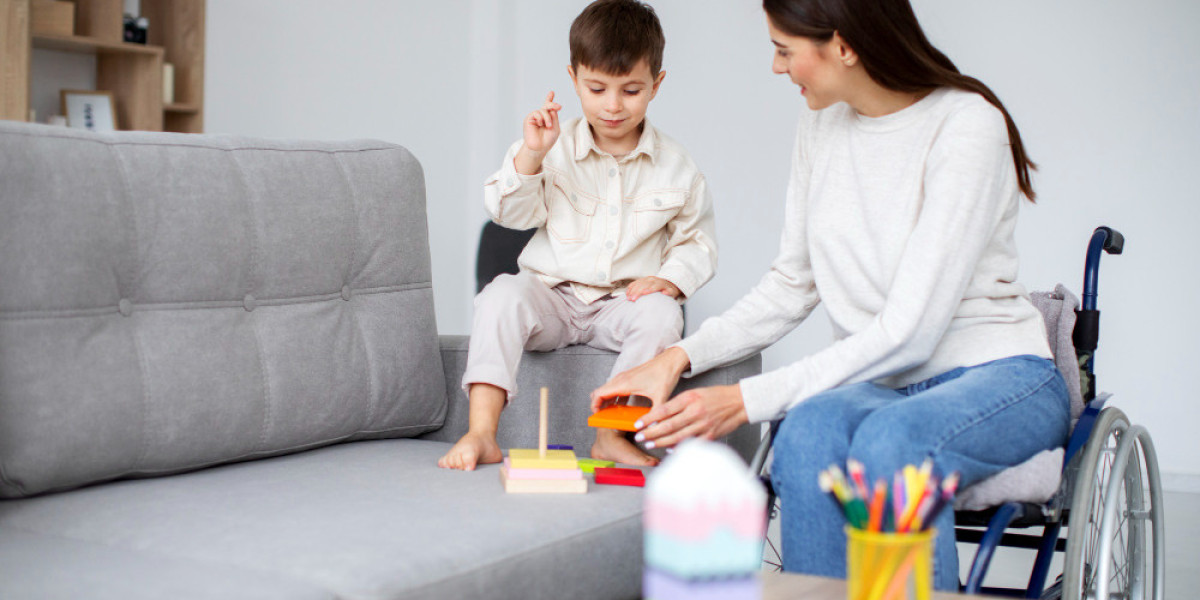Occupational therapy (OT) is more than exercises and activities—it’s a journey of discovery, confidence building, and independence for children facing developmental or physical challenges. Through personalized interventions, OT helps young learners master the tasks that shape their daily lives: dressing, feeding, grooming, and beyond. Below, we explore five transformative ways paediatric OT can bolster daily living skills, weaving in real-world stories, evidence-based techniques, and hard data that highlight why these services are so vital.
Developing Fine Motor Skills
The Power of Tiny Muscles
Imagine little Sam, who struggled to button his shirt each morning. His parents watched as his frustration grew, and mornings became battles. Enter occupational therapy, where Sam’s OT introduced playful bead-stringing games and pencil-grip tools. Within weeks, Sam’s pincer grasp strengthened, allowing him to button up independently—transforming chaos into confidence.
Evidence Speaks
Fine motor skills aren’t just about dexterity; they pave the way for handwriting, self-feeding, and more. In one study, nearly 80% of children referred for fine motor challenges demonstrated statistically significant improvements in visuomotor integration and fine motor precision after a short-term OT intervention PMC. These gains translate directly into everyday victories: tying shoelaces, using utensils, and artistic expression.
Enhancing Sensory Processing and Regulation
When the World Feels Too Big
For children with sensory processing differences—like seven-year-old Ana—the world can feel overwhelming. A crowded classroom, scratchy labels, or a loud fire alarm might trigger shutdowns or meltdowns. Occupational therapy offers sensory diets—customized plans filled with activities like swinging, deep-pressure brushing, and textured playmats—that help Ana regulate her responses and stay engaged.
Backed by Research
Activity-based interventions that emphasize sensory engagement show strong evidence for improving participation in activities of daily living (ADLs) and overall performance in ADL skills AOTA Research. By integrating controlled sensory input, children learn to self-regulate, reducing anxiety and bolstering focus during tasks like hand-washing or meal preparation.
Strengthening Gross Motor Skills and Balance
Finding Your Center
Picture Max, a lively eight-year-old with cerebral palsy, who loved playground adventures but struggled on uneven surfaces. His occupational therapist incorporated obstacle courses, balance-beam walks, and trampoline exercises—each session designed to fine-tune his equilibrium responses. Over months, Max navigated sidewalks and stairs with newfound assurance, opening the door to greater community participation.
Clinical Insights
Gross motor improvements are foundational. Research indicates that occupational therapy activities—ranging from trampoline jumps to walking on unstable surfaces—lead to significant enhancements in balance reactions and postural control PMC. These gains support core stability, crucial for independent dressing, toileting, and navigating the environment safely.
Building Self-Care Independence
Small Wins, Big Impact
Every morning, Lucy’s parents wrestled with feeding tubes and specialized utensils. After collaborating with an OT, Lucy’s mealtime routine transformed. Adaptive plates with non-slip bottoms and angled spoons empowered her to feed herself, reigniting a sense of autonomy and dignity. These self-care triumphs extend beyond nutrition—they foster self-esteem and encourage further skill development.
Statistics on Self-Care Outcomes
A systematic review of pediatric OT interventions found consistent improvements in children’s independence during ADLs such as dressing, grooming, and feeding PMC. Even modest increases in self-care capabilities can reduce caregiver burden and support inclusion in school and social settings.
Promoting Social Participation and Confidence
From Isolation to Inclusion
Six-year-old Leo, diagnosed with autism spectrum disorder (ASD), watched peers build Lego structures effortlessly, yet hesitated to join in. His OT introduced group sessions focusing on turn-taking games, social stories, and role-play. As Leo’s play skills grew, so did his social circle. By improving fine motor and communication skills in tandem, OT paved the way for Leo to feel seen, heard, and valued.
Empowering Through Community
Occupational therapy isn’t confined to clinics. It flourishes in homes, schools, and playgrounds. Collaborations with teachers and parents ensure consistency, and group programs—like fine motor clubs or social skills workshops—provide peer support. These collective experiences bolster resilience, nurture friendships, and reinforce the skills learned one-on-one.
Bringing It All Together: The OT Collaboration Model
Occupational therapy thrives on teamwork. OTs coordinate with physiotherapists, speech pathologists, educators, and families to create holistic support networks. This multidisciplinary approach ensures that a child’s goals—whether mastering handwriting, dressing independently, or participating in a school choir—are pursued from every angle.
“Working with our OT team felt like unlocking a treasure chest,” says one mother. “Suddenly, everyday tasks weren’t obstacles—they were opportunities for my daughter to shine.”
Real-World Impact and Accessibility
Across Australia, families are discovering the profound benefits of paediatric OT. As demand grows, Iconic Care stands ready to help:
For tailored support from a dedicated Paediatric Occupational Therapist in Australia, visit our service page and learn how our evidence-based, child-centred approach can transform your child’s daily life.
By integrating real statistics and personalized narratives, we see how occupational therapy empowers children to conquer daily living skills, build confidence, and engage fully in their world. Whether fine-tuning tiny hand muscles or fostering sensory regulation, OT provides the tools—and the encouragement—children need to thrive.
Conclusion
Occupational therapy opens doors to independence, confidence, and meaningful engagement in everyday life. By strengthening fine and gross motor skills, enhancing sensory regulation, and fostering self-care and social participation, OT empowers children to overcome challenges and thrive. With a collaborative, evidence-based approach, dedicated Paediatric Occupational Therapists guide families and children toward lasting success—turning daily tasks into opportunities for growth and joy.














